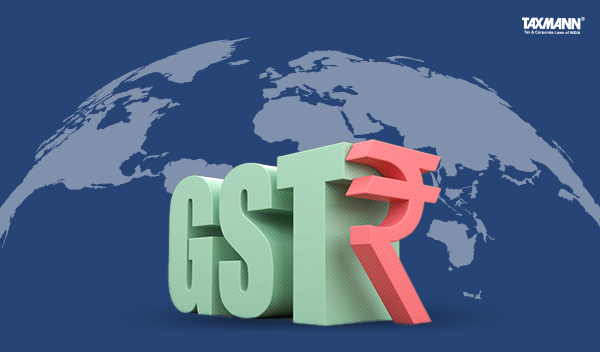[Opinion] GST on Services Procured from Foreign Providers – A Critical Analysis of Recent Judicial Developments
- Blog|News|GST & Customs|
- 2 Min Read
- By Taxmann
- |
- Last Updated on 22 August, 2024

Manoj Sharma – [2024] 165 taxmann.com 560 (Article)
Introduction
In a globalized economy, cross-border transactions involving services are increasingly common. The application of Goods and Services Tax (GST) on such services, particularly those related to events and exhibitions held outside India, has become a contentious issue. The Rajasthan High Court’s recent judgment in Savio Jewellery v. Commissioner, CGST [2024] 162 taxmann.com 607/104 GST 390/87 GSTL 140has brought this issue to the forefront, providing a judicial perspective that necessitates a closer examination of GST applicability on international services.
Legal Framework for Reverse Charge Mechanism (RCM)
Under the Indian GST regime, the reverse charge mechanism (RCM) applies to certain cross-border services. Key provisions include:
- Notification No. 10/2017-Integrated Tax (Rate) dated 28.06.2017: Issued under Section 5(3) of the IGST Act, this notification mandates that any service provided by a person located in a non-taxable territory to a person in a taxable territory is subject to GST under RCM.
- Section 5 of the IGST Act: Specifies the levy of GST on inter-state supplies. It states:
“5. (1) Subject to the provisions of sub-section (2), there shall be levied a tax called the Integrated Goods and Services Tax on all inter-State supplies of goods or services or both by a taxable person.”
- Section 9 of the CGST Act/SGST Act: Deals with intra-state supplies. It states:
“9. (1) Subject to the provisions of sub-sections (2) and (3), there shall be levied a tax called the Central Goods and Services Tax on all intra-State supplies of goods or services or both by a taxable person.”
- Section 2(11) of the IGST Act: Defines “import of service” as a service supplied by a person outside India to a recipient in India where the place of supply is also in India. It states:
“2. (11) ‘import of service’ means the supply of any service where— (a) the supplier of the service is located outside India; (b) the recipient of the service is located in India; and (c) the place of supply of the service is in India.”
The application of GST under RCM arises when the service provider is located outside India, and the recipient is in a taxable territory within India.
Recent Judicial Interpretation: The Savio Jewellery Case
The Rajasthan High Court’s judgment in Savio Jewellery (supra) is pivotal. The Court held that GST is payable on services related to events and exhibitions held outside India, despite the place of supply being outside India. The Court’s rationale centered on Notification No. 10/2017-Integrated Tax (Rate), which prescribes GST liability for services from non-taxable territories to taxable territories. The judgment did not delve into the fundamental principle that GST is a destination-based consumption tax.
The petitioner argued that GST should not be levied because the place of supply of the service was outside India, as per Section 13(5) of the IGST Act. The Court rejected this argument, citing Section 7(5)(a) of the IGST Act, which stipulates that supplies with a place of supply outside India are still subject to GST if the supplier is located in India.
Click Here To Read The Full Article
Disclaimer: The content/information published on the website is only for general information of the user and shall not be construed as legal advice. While the Taxmann has exercised reasonable efforts to ensure the veracity of information/content published, Taxmann shall be under no liability in any manner whatsoever for incorrect information, if any.



 CA | CS | CMA
CA | CS | CMA
